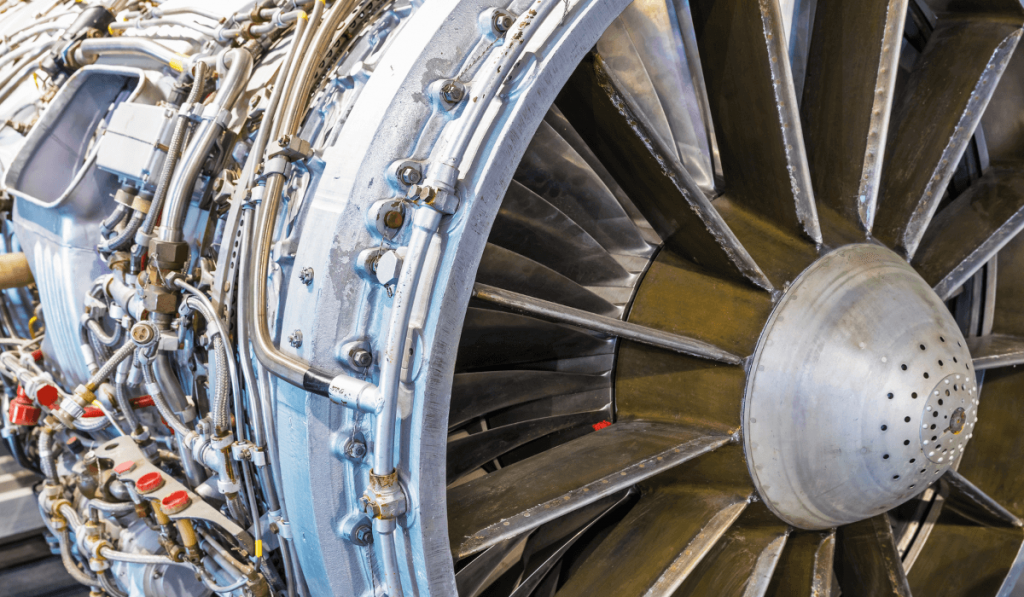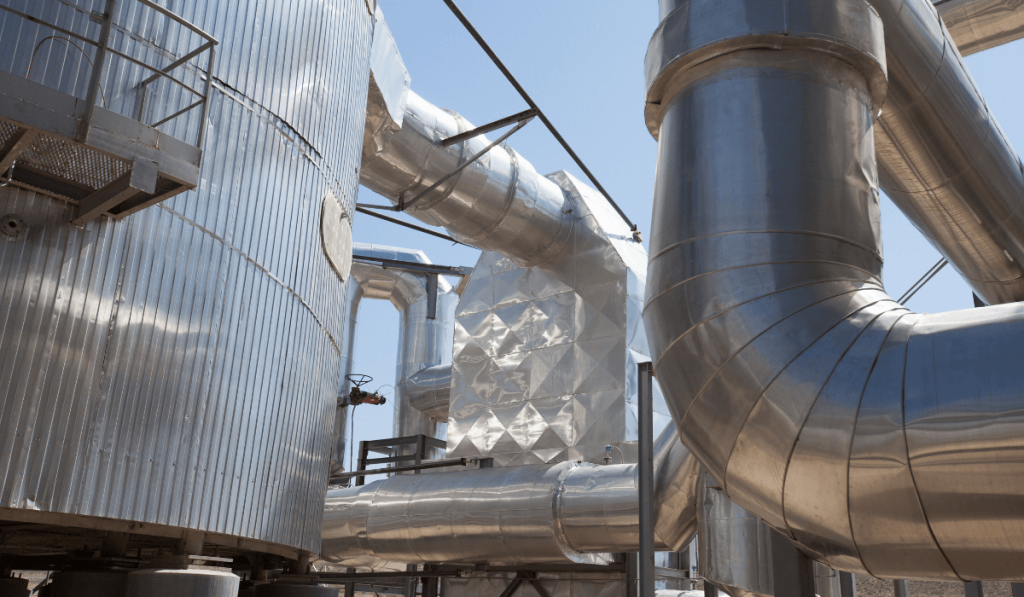Both Inconel and Incoloy are powerful alloys that can withstand immense pressure. However, they differ in properties and areas of application.
This article will inform you about the differences between Incoloy and Inconel and the critical factors to consider when choosing one.
Inconel is a trademarked name that refers to 20 different alloys.
While there are many differences between different types of Inconel alloys, the two dominant elements they are all composed of are nickel and chromium. Inconel alloys contain at least 50% nickel in their composition.
Some common varieties of Inconel alloys are Inconel 625, Inconel 718, or Inconel 690.
Engineers and manufacturers across countless industries use Inconel alloys. You’ll read about those in a moment, but right now, let’s explain the main properties that make Inconel so useful.
Inconel alloys are known to be incredibly durable. Their most distinctive property is resistance to corrosion and high temperatures.
When metals are exposed to high temperatures, they begin to oxidize. A chemical reaction occurs on the surface of the metal as the oxygen heats, causing the outside layer of the material to rust.
Unlike iron or aluminum, a thick protective layer forms on Inconel alloys when heated, keeping the surface from oxidizing.
That’s why parts made of Inconel do not corrode.
Furthermore, Inconel alloys keep excellent mechanical properties at extreme temperatures.
During high or low-temperature exposure, metals can lose properties like toughness and strength. However, Inconel maintains its strength from -423°F (-253°C) to 1300°F (705°C), with some Inconel alloys being able to withstand even higher temperatures.
In addition, Inconel alloys are lightweight metals, meaning they weigh considerably less than other materials (such as steel) that are typically used for similar applications.
Engineers and manufacturers use Inconel alloys in a variety of ways.
In the aerospace industry, for instance, Inconel is used in the construction of jet engines, rocket motors, and even spacecraft parts.
There are several reasons for that. The first is Inconel’s incredible resistance to extreme variations in heat, since the engine’s temperature during combustion significantly differs from outside temperatures in the atmosphere.
Next, Inconel is an exceptionally light material, which makes the aircrafts themselves lighter and capable of carrying more load.
For instance, Inconel 718 accounts for half the weight of a turbojet engine since it’s the critical material for the engine’s blades and discs in the turbine section and the high-pressure section of the compressor.

Various Inconel alloys are frequently applied for solutions in the energy sector, namely in the oil and gas industry and the nuclear industry.
When companies extract oil and gas, it’s always from underground environments where conditions are extreme. As Inconel is a metal resistant to heat and corrosion, it is common to see various drilling equipment parts made of that material.
Also, engineers use Inconel alloys to construct pipes for oil and gas offshore production.
As for the nuclear industry, nuclear reactors are extremely hot environments that demand the most robust metals available. So, their steam generator tubes contain Inconel because of the alloy’s high resistance to extreme temperature.
Inconel is also used in various waste management systems in the energy sector and manufacturing. Besides these industries, Inconel finds numerous applications in the automotive industry and various seawater industries.
Next, let’s talk about Incoloy.
Like Inconel, Incoloy is a trademarked name used to describe a group of alloys.
Incoloy alloys vary by composition, but they always have a nickel-iron-chromium base.
Because of the additional iron in the base, they contain less than 50% of nickel content. This constitutes the main structural difference between Inconel and Incoloy.
Some prominent examples of Incoloy alloys are Incoloy 800, Incoloy 825, and Incoloy 900. Like many alloys, Incoloy has some outstanding properties and is applied widely across many industries.
Incoloy alloys are known for their resistance to oxidation in high-temperature environments.
While not as robust as Inconel alloys, Incoloy alloys can withstand temperatures of up to 1000°F (540°C) without microstructural changes that will damage their integrity.
This means that surfaces made from Incoloy won’t corrode when exposed to high temperatures.
Such alloys are also resistant to sulfuric and acidic environments that cause additional corrosion.
For instance, when you’re burning fossil fuels or mining ores that contain sulfur, there will be a lot of sulfur dioxide present in the environment. If the site machinery or infrastructure lack proper resistant properties, they will corrode and eventually break.
Finally, Incoloy is easy to fabricate and can be made using the same manufacturing process and technology as stainless steel. When an alloy’s welding process is this straightforward, its area of application becomes extensive in many industries.
Let’s talk more about ways to use Incoloy alloys.
Incoloy alloys are the material of choice for many industries.
Engineers use Incoloy as their go-to material whenever designing systems that carry hazardous chemicals.
For instance, the Incoloy is commonly utilized in the chemical and petrochemical industries for sulfuric acid piping, valves, and chemical vessels. The Incoloy alloy protects the vital parts of the infrastructure, enabling safe transport of acidic chemicals.

Since Incoloy is highly resistant to corrosion, it’s also frequently used for marine exhaust systems in yachts, military vessels, and vehicles exposed to seawater.
The fact that Incoloy is an easy alloy to cast and weld is the reason why it is so widely used by the manufacturers of seawater machines and equipment.
Incoloy alloys are also widely applied in other industrial sectors. The automotive industry uses it as a more affordable alternative to Inconel in order to cut down on production costs without compromising the quality of its products.
If you’re trying to decide between Inconel or Incoloy for your project, consider these factors.
While there are many grades of Inconel and Incoloy alloys, the latter are generally cheaper. This is because Incoloy is easy to weld and can be made with the same process as stainless steel.
Therefore, using Incoloy instead of Inconel is more affordable as long as it meets other project requirements.
It goes without saying that exposure to extreme temperatures affects the structural integrity and mechanical properties of metal alloys.
Inconel is somewhat more resistant than Incoloy in this regard. Therefore, if your project or manufacturing involves intensive temperatures beyond 1300°F (705°C), choose Inconel over Incoloy.
Failure to consider the thermal demands and exposure to heat is a critical mistake. That’s why industries that include working with extreme temperatures, like the aerospace industry or the nuclear energy sector, opt for Inconel.
Various manufacturing processes that involve working with acids and corrosive chemicals have unique alloy demands.
If you ignore the impact of acidic environments, your materials will corrode and be beyond maintenance.
When choosing between Inconel and Incoloy, keep in mind that Incoloy has a higher resistance to reducing agents and acids, since it contains higher levels of molybdenum and copper.
This article covered the critical differences between Inconel and Incoloy in terms of their properties and spheres of application. We’ve also discussed what to take into account when choosing between the two alloys.
Inconel and Incoloy might sound similar in name, but they’re essentially different. Knowing their properties and how they fare in different environments is vital for choosing the right one for your project.
Hopefully, this article made a difference and helped you out.
For further information about the different alloys and services we offer, contact us directly via the convenient website form or request a quote here.
We welcome your inquiries.
From a contract manufacturing firm, BuntyLLC evolved into a full service custom machined, forged and cast metal parts fabrication enterprise. We supply global solutions from our headquarters in Greenville, South Carolina.
Get A Quote